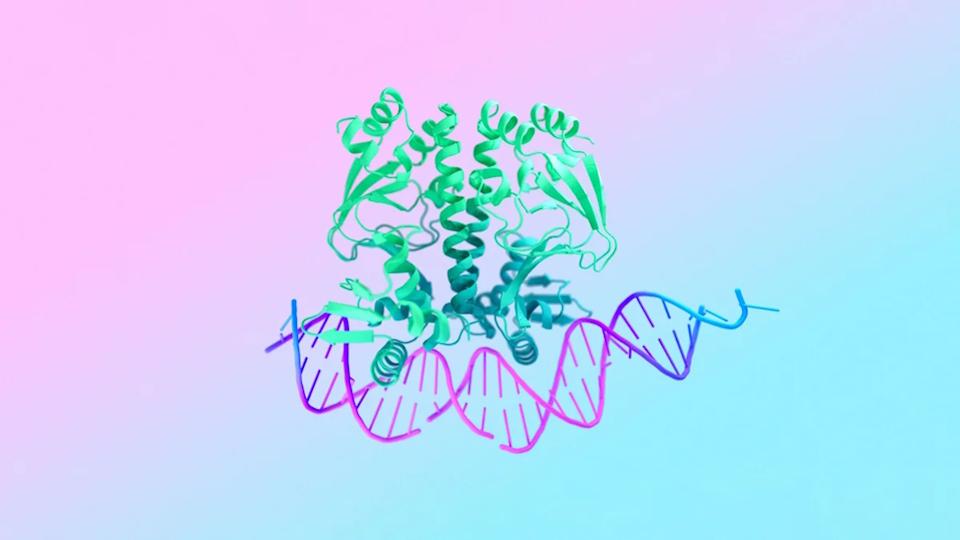AlphaFold 3 takes structure predictions well beyond proteins

The latest version of Google DeepMind and Isomorphic Labs’ AlphaFold model can predict the structure and relationships not only of proteins, but “all of life’s molecules”, according to its developers.
That includes DNA, RNA, antibodies, the ligands that bind to receptors in cells, and more – an achievement that the companies claim will “transform our understanding of the biological world and drug discovery.”
Since AlphaFold was first launched in 2021, it was improved upon with the launch of AlphaFold 2 in 2022, an update that extended the range of proteins covered and added new organisms used in medical research.
The technology has already been used to develop new medicines that can bind to problem proteins more effectively and discover enzymes that can break down plastics so they can be recycled again and again.
Now, AlphaFold 3 has widened the reach of the artificial intelligence-powered platform even further. Along with greater accuracy for the prediction of 3D protein structures, it offers a big increase for antibody-antigen interactions and can decipher protein-ligand interactions that – according to a paper in Nature – outperforms widely-used specialist systems like AutoDock Vina and RoseTTAFold.
“For the interactions of proteins with other molecule types we see at least a 50% improvement compared with existing prediction methods,” according to the Google DeepMind AlphaFold team, which has just published a blog post on the update.
“Experimental protein-structure prediction can take about the length of a PhD and cost hundreds of thousands of dollars,” they wrote. “Our previous model, AlphaFold 2, has been used to predict hundreds of millions of structures, which would have taken hundreds of millions of researcher-years at the current rate of experimental structural biology.”
The update has come alongside the launch of AlphaFold Server, a free platform that scientists around the world can use for non-commercial research.
Commenting on the update, Dr Nicole Wheeler from the School of Computer Science at the University of Birmingham in the UK said the generalised modelling approach on display in AlphaFold 3 is impressive and a big advance on AlphaFold 2, which needed a number of specialised modules to produce good results.
“AlphaFold 3 has managed to abstract much of this away by using a generative AI component,” she remarked, noting that the developers have reduced the number of steps and complexity of their model.
“This offers a lot of promise in expanding what we can do with these AI tools for understanding and engineering biology, like designing biological parts to control the expression of genes or designing small molecules to treat disease.” And has also reduced the computational power needed, which provides an environmental benefit in the form of a reduced carbon footprint.
Isomorphic Labs is already collaborating with pharma companies to apply it to real-world drug design challenges, including Eli Lilly and Novartis, in the hope of finding new life-changing treatments for patients.












